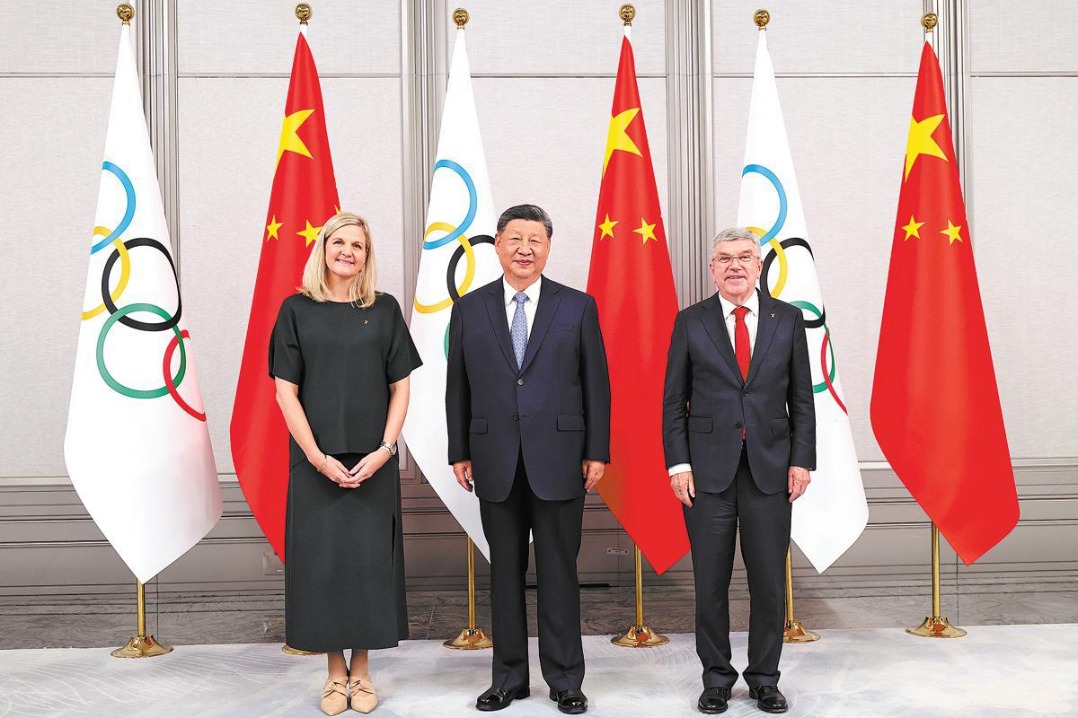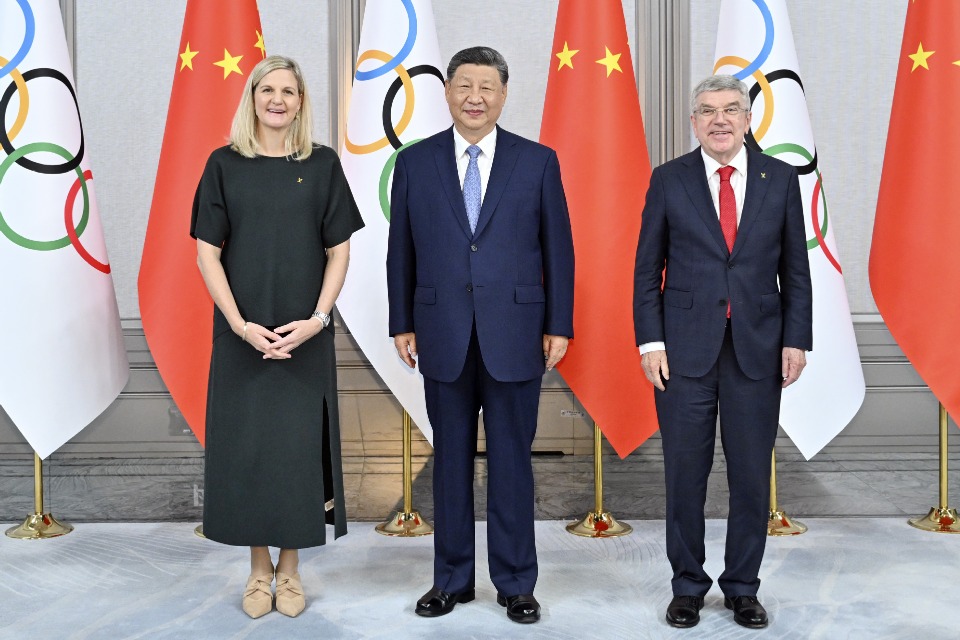China can offer its expertise in water conservancy and treatment

Editor's note: This article is part of the Preview Policy Report for the 2018 Beijing Summit of the Forum on China-Africa Cooperation, to be published by China Watch, China Daily's think tank.
When you think of Africa, the manifold wonders of nature and its captivating landscapes come to mind. However, with rapid population growth and the acceleration of urbanization, Africa's ecology is under threat. In particular, the water resources and environment are under severe stress due to human activities, and many countries face serious problems such as shortages and worsening pollution.
To address such crises requires sufficient capacity in technology and economy. Developed countries have advanced technology in some aspects, but the high price makes it prohibitive. In China, mature cost-effective water treatment products and technologies have been developed, which are in a good position to offer solutions to improve people's health and quality of life in Africa. At the same time, it can also help to promote domestic technology and equipment localization in Africa.
Over the past 15 years, I have made more than 50 trips to the continent to help local engineers learn and use China's water treatment technologies, especially in the communities. With support from the UN Environment and Chinese Ministry of Science and Technology, I led teams to Kenya, Tanzania, Ethiopia, Morocco, Sudan, Uganda and other African countries for surveys of water resources and water treatment demonstrations. From the Nile and Lake Tanganyika and Lake Victoria river basins, we sampled water to test for reagents, make field visits to water factories, established longstanding partnerships with the UN Environment and the UN-Habitat as well as governments, universities and businesses in countries such as Kenya and Ethiopia.
The Nairobi water quality improvement project is an example of good progress. The Ngethu Water Treatment Plant, which processes 400,000 tons of water a day, is the largest waterworks in East Africa. But in the rainy season, the conventional water treatment chemicals or water purifier treatment couldn’t get good results. When turning on the tap, the water is often yellow or cloudy. We started working with Nairobi water experts seven years ago. In 2013, we developed efficient coagulants (coagulant/water purification chemicals) to effectively deal with the big fluctuations of raw water turbidity in the rainy season, reducing about 20 percent of the water treatment costs and improving the water rate above 15 percent. Now the water quality has met the World Health Organization standards.
In sewage disposal, a Chinese research team in 2014 participated in a demonstration project of artificial wetland processing sewage technology in Kenya's third biggest city, Kisumu. Using the current technique, processing efficiency was low, resulting that a large number of pollutants flows into the Lake Victoria and threatens water quality. We established 600 tons/day-capacity artificial wetlands in the city, and selected several local natural plants for in-depth sewage treatment, thus reducing the nutrients entering the Lake Victoria. The project has been completed and long-term water quality monitoring will be carried out in the operation of artificial wetlands.
With innovative technologies being developed, the efficiency of water conservancy and treatment has been largely improved. However, accelerated urbanization has imperiled water resources, sanitation and the whole ecosystems in Africa. We should pay close attention to the status quo of the water resource and management. Through field investigation and data search, Chinese research groups have accumulated rich knowledge about the water resource situation in Africa. For example, we have investigated and evaluated water environment of seven typical cities and basins in Africa, including the Nile and the Lake Chad basin. Chinese researchers are poised to contribute their experience and wisdom to solving the water problems facing Africa and protecting the ecosystems.
On the other hand, African countries needs to cultivate professionals in water treatment and climate change, and the awareness of protecting water resource should be promoted. Since 2006, Tongji University and the UN Environment co-launched master's and doctoral degree programs in sustainable development catering to students from developing countries. Most graduates have returned to their home countries and worked in such fields as environment, land and resources, agriculture and international organizations like United Nations Economic and Social Commission for Asia and the Pacific.
China has been striving to realize the "Chinese dream", while Africa is also striving to realize its "African dream" of "seeking strength through unity, development and rejuvenation". The Chinese Dream and the African Dream are closely linked and mutually reinforcing, which will contribute to building a community of shared future for mankind.
Li Fengting is vice dean of the college of environmental science and engineering, deputy dean of UN Environment-Tongji Institute of Environment for Sustainable Development, Tongji University. The author contributed this article to China Watch exclusively. The views expressed do not necessarily reflect those of China Watch.
All rights reserved. Copying or sharing of any content for other than personal use is prohibited without prior written permission.


































